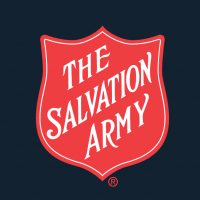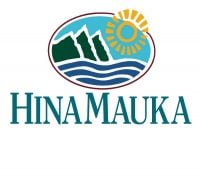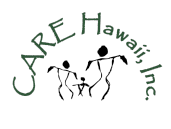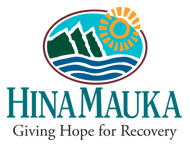
WorkNet, Restoring Lives, Strenghtening Communities
Drug Rehab Center in Honolulu, Hawaii
- Substance Abuse
- Opioid Addiction
- Dual Diagnosis
- Drug Addiction
- Alcoholism
WorkNet, Restoring Lives, Strengthening Communities in Honolulu, Hawaii offers outpatient addiction treatment services, including counseling, therapy, group and family support, aftercare planning, education, and relapse prevention, with an integrated and holistic approach tailored to individual needs, as well as additional resources and support like job training and vocational counseling.
About WorkNet, Restoring Lives, Strenghtening Communities in Hawaii
WorkNet, Restoring Lives, Strenghtening Communities in Honolulu, Hawaii is an outpatient treatment center that offers a wide range of services to individuals struggling with addiction and substance use disorder. Included among these services are counseling and therapy, group and family support, aftercare planning, and educational and relapse prevention services. WorkNet emphasizes an integrated and holistic approach to addiction treatment, taking into account the physical, spiritual, and emotional aspects of recovery.
At WorkNet, Restoring Lives, Strenghtening Communities, individuals in the program will receive comprehensive care tailored to their unique needs and diagnosis. This includes individualized counseling that focuses on developing healthy coping skills, emotions regulation, and self-esteem building. The team also offers family therapy to provide support and education to family members and to help them unpack the dynamics of addiction in their home. Furthermore, the center emphasizes education and relapse prevention, which may include 12-step meetings, mindfulness practice, recreational activities, and peer mentorship.
WorkNet, Restoring Lives, Strenghtening Communities is accredited by the Joint Commission and is a proud member of the National Association of Addiction Treatment Providers (NAATP). The team at WorkNet is dedicated to providing the highest quality of care and is committed to crafting evidence-based treatment plans that are tailored for each individual. The facility also provides additional resources and support through their volunteer-driven program, which includes job training, GED assistance, and vocational counseling services.
Genders
Ages
Modality
Additional
Accreditations

CARF
The Commission on Accreditation of Rehabilitation Facilities (CARF) is a non-profit organization that specifically accredits rehab organizations. Founded in 1966, CARF's, mission is to help service providers like rehab facilities maintain high standards of care.
Conditions and Issues Treated
Substance abuse is the excessive use of any drug. This includes alcohol, medications, and illegal drugs. Substance abuse is treated with a combination of physical and mental treatments. Patients detox and follow up with therapies that target the underlying cause of the addiction. Substance abuse is a severe problem that can be successfully treated with a variety of therapies. WorkNet, Restoring Lives, Strenghtening Communities treatment uses a combination of therapies along with other resources to overcome substance abuse.
Opioid addiction treatment should be done in a medically supervised drug rehab. While taking opioids, users will typically use other substances to enhance the effects of opioids or to reduce the adverse effects of opioid use. Opioid addiction treatment will include detoxification and drug rehab counseling to help both the user and their loved ones learn how to live a successful sober lifestyle.
Treatments such as methadone, buprenorphine, and naltrexone are three medications that can help treat opioid addiction. These drugs work on the brain’s pleasure center and reduce cravings and the effects of illicit opioids such as heroin. These drugs can be either given orally or by injection. Individual drug rehab counseling sessions can be helpful to discuss any questions or concerns with the drug treatment program. This counseling will also help the user set goals for when they finish drug rehab.
Opioid addiction recovery is a long process. Many of the changes to the brain caused by opioid use cannot be undone, but with time and the proper treatment, a person can return to normal function. After detox, treatment will include drug rehab counseling and entering a halfway house or sober living community. Aftercare is critical to long-term recovery, as it helps the user avoid relapsing and entering back into drug rehab.
Levels of Care Offered
This center offers a variety of custom treatment tailored to individual recovery. Currently available are Drug Rehab, Dual-Diagnosis, Intervention, Outpatient, with additional therapies available as listed below.
“Outpatient treatment is ideal for those who have a lower intensity addiction. It’s also suitable for those with a supportive environment and those on a tight budget.
Outpatient treatment can be considered the lowest intensity level of addiction treatment. It is ideal for early phase addiction or lower intensity addictions. It may involve weekly sessions instead of daily. Peer group support, 12-step programs, and individual counseling may still be used and anti-addiction medication.
Drug rehab intervention aims to make sure patients understand the risks of their addiction and possible outcomes. They must learn how their addiction affects those around them and allow a therapy session to help move past the physical symptoms. They often include psychotherapy or behavioral therapy, group therapy, family counseling, and peer support.
Therapies & Programs
No single treatment works for all addicts; therefore, the goal of treatment and therapy should be to find what works best for each individual. Some people requiring addiction treatment may only need a few weeks of inpatient care. Others will require long-term residential care. Tolerance and withdrawal levels vary from person to person and thus affect the intensity of the treatment needed.
If an individualized approach to treatment and therapy is not offered, addicts may fail to reap benefits from their efforts. Professionals must customize plans according to their patient’s needs, limitations, and strengths. The goal of all forms of addiction treatment should be for addicts to find healthy ways to cope with their addiction and its underlying causes.
Group therapy is held in a safe, controlled setting where patients can feel comfortable sharing their struggles and gaining perspective through shared conversations. It takes place in a group rather than one on one to prevent feelings of isolation or being unique in their situation while creating an environment for addicts at WorkNet, Restoring Lives, Strenghtening Communities to develop fellowship, accountability, and support. Group therapy is an important tool in recovery that prevents cravings that prompt a return to active addiction.
Cognitive-behavioral therapy is a talking-based method that helps people struggling with addiction replace destructive behaviors with healthier ones. CBT also helps them identify the underlying thoughts and beliefs that cause these behaviors in the first place and ways to control those thoughts and feelings. It can be administered as a holistic therapy or as part of combination therapy and—as opposed to turning to drugs and alcohol—helps addicts learn how to respond to negative thoughts instead.
Life skills training is beneficial for addicts in recovery because it helps them learn how to take care of themselves and improve their quality of life, which can promote feelings of purpose and motivation.
This type of treatment works by teaching individuals life-enhancing skills that support positive living, including:
- Healthy lifestyle habits
- Skills to effectively manage stress
- Effective communication skills to help them get their needs met without turning to drugs or alcohol
- Money management and budgeting skills so they can continue to take care of themselves after treatment ends.
Payment Options Accepted
For specific insurance or payment methods please contact us.
Additional Details
Specifics, location, and helpful extra information.
Honolulu, Hawaii 96817 Phone Number(808) 521-7770 Meta DetailsUpdated November 25, 2023
Staff Verified
WorkNet, Restoring Lives, Strenghtening Communities Patient Reviews
There are no reviews yet. Be the first one to write one.
Honolulu, Hawaii Addiction Information
Hawaii has one of the highest rates of drug abuse in the nation. Methamphetamines and marijuana are the most common drugs involved in drug-related crimes in Hawaii. The state loses $500 million every year due to methamphetamine abuse, according to the Hawaii Meth Project. More than 1 million prescriptions for prescription drugs are given out every year.
In 2016, there were 809 drug-related deaths in Honolulu. Heroin was involved in more than half of all overdose deaths in 2016. 6.1 percent of people in Honolulu abused drugs in the past month. In 2015, there were 2,538 admissions to treatment centers for drug abuse in Honolulu. There are many drug treatment facilities in Honolulu, HI that can help you or your loved one get sober.
Treatment in Nearby Cities
- Honolulu, HI (1.4 mi.)
- Hana, HI (127.9 mi.)
- Kealakekua, HI (177.4 mi.)
- Mountain View, HI (216.9 mi.)
- Wailuku, HI (93.3 mi.)
Centers near WorkNet, Restoring Lives, Strenghtening Communities



The facility name, logo and brand are the property and registered trademarks of WorkNet, Restoring Lives, Strenghtening Communities, and are being used for identification and informational purposes only. Use of these names, logos and brands shall not imply endorsement. RehabNow.org is not affiliated with or sponsored by WorkNet, Restoring Lives, Strenghtening Communities.




